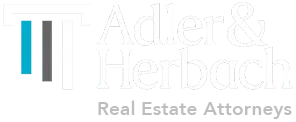How Long Does A Home Inspection Take?
A home inspection takes 2 to 4 hours for a 2,000 square feet house. Add 30 minutes to the inspection time for every additional 500 square feet of living area. Houses between 1,500 and 2,000 square feet generally take about two hours to inspect.
Older homes will take about an hour longer to inspect than newer builds. The home inspector’s experience is also important, as a seasoned inspector has better access to systems and knows what to look for based on the age of the house. The weather during the inspection can also affect the length of the inspection.
What Is A Home Inspection?
A home inspection provides an in-depth assessment of a property’s condition before purchase. Conducted by a certified home inspector, this examination evaluates the house’s structural components, exterior, interior, electrical systems, plumbing and HVAC systems. The inspector identifies potential safety hazards, necessary repairs, and future maintenance requirements.
For Chicago homebuyers, a professional home inspection offers invaluable insights into the property’s true condition, helping them to make informed decisions, negotiate with sellers, and plan for future expenses.
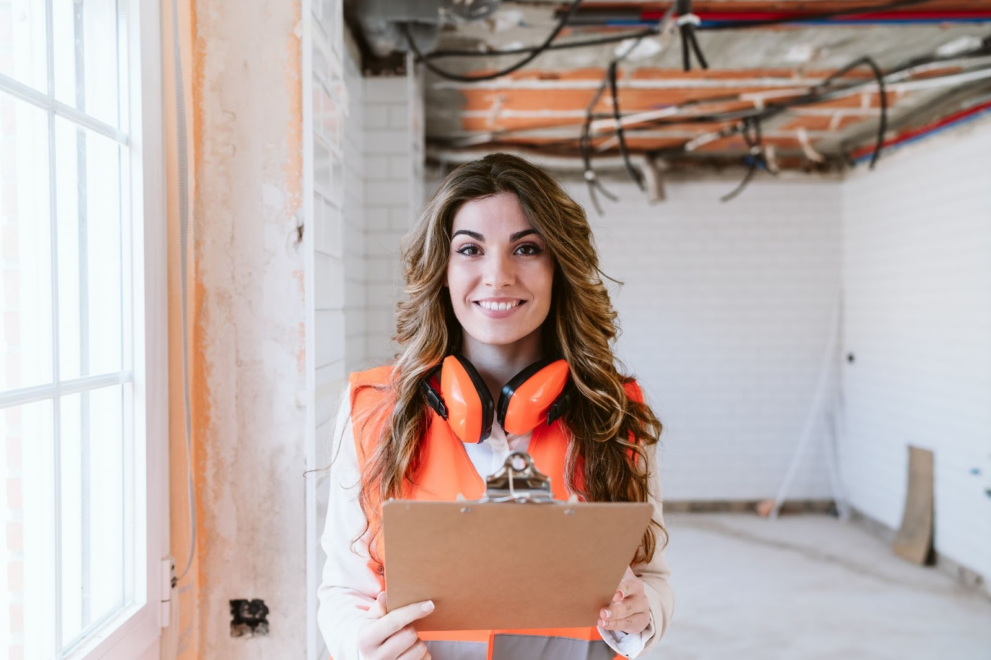
This comprehensive evaluation ensures buyers can confidently invest in a safe and sound home, free from any surprises.
Legal Considerations Related to Home Inspections in Chicago, Illinois
Home inspectors must be licensed and adhere to state regulations in Chicago, Illinois.
- Home inspectors should follow the standards of practice set forth by the Illinois Department of Financial and Professional Regulation (IDFPR).
- They should also carry professional liability insurance to protect their clients.
Disclosure requirements for sellers:
- Illinois law requires sellers to complete a Residential Real Property Disclosure Report outlining any known issues or defects with the property. This report must be provided to potential buyers before signing a contract.
Contract provisions related to inspections:
- Real estate contracts often include contingencies that allow buyers to conduct a home inspection and negotiate repairs, credits, or price reductions based on the inspection report’s findings.
- A buyer might waive the right to inspection to incentivize the seller to accept an offer.
Role of the attorney in the home inspection process:
- It’s common for Chicago real estate attorneys to be involved in house inspections.
- They ensure that the contract’s inspection provisions protect the buyer’s interests.
- They conduct negotiations based on the final report given by home inspectors.

For Buyers
Make informed decisions with our legal assistance during home inspections. Make sure your investment is protected!

For Sellers
Get a fair price for your property with our expert advice and ensure a smooth home inspection.
Call now & Get a Free Consultation!
Special Offer: Mention this website and get a free consultation on your first service!
Home Inspection vs. Home Appraisal
While both home inspections and home appraisals are essential aspects of the house-buying process, they serve different purposes.
| Home Inspection | Home Appraisal | |
|---|---|---|
| Purpose | Assess the property’s condition and identify any issues or concerns | Determine the market value of the house |
| Conducted By | Certified home inspectors | Licensed appraisers |
| Scope | Covers the structural components, exterior, interior, electrical systems, plumbing, HVAC systems and built-in appliances | Considers factors such as location, size, age, condition and comparable properties in the area |
| Importance to Buyers | Provides essential information about the property’s condition, helps in negotiating with the seller, and allows them to make informed decisions about the home purchase | Ensures that the buyer is paying a fair market value for the property and may be required by lenders for mortgage approval |
| Importance to Sellers | Helps identify any potential issues that may need to be addressed before listing the property, potentially increasing appeal to buyers | Provides an estimate of the property’s value, which can help set the listing price and marketing strategy |
| The impact on Home Buying Process | Can influence negotiations, agreement terms, and the buyer’s decision to proceed with the purchase or walk away | Can influence the buyer’s ability to obtain financing and the lender’s decision to approve the mortgage |
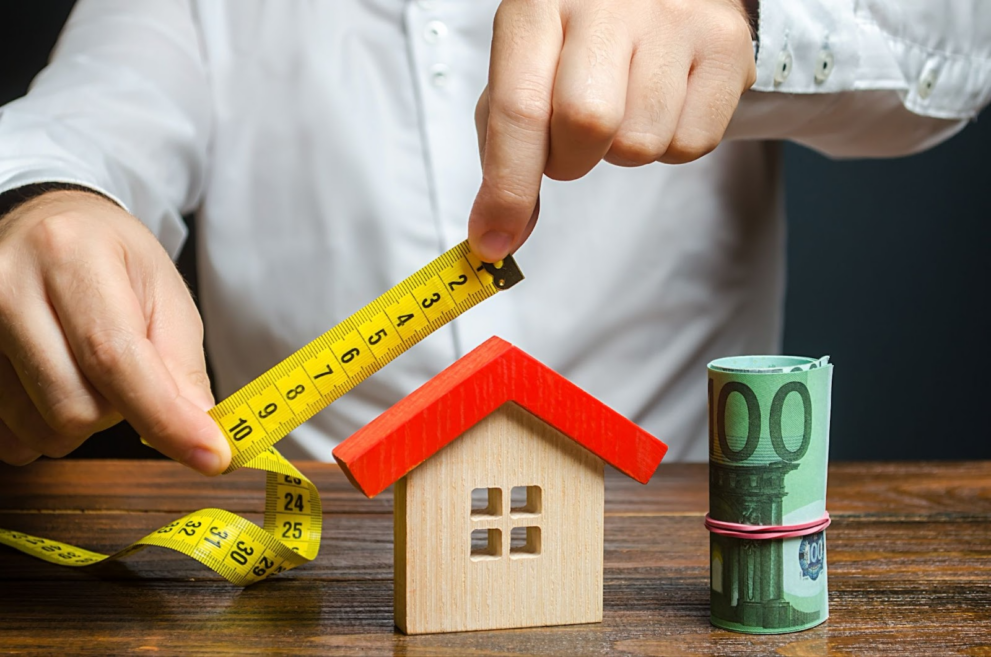
House Inspection Process
The house inspection process involves certified home inspectors performing an assessment of the property’s structural components, electrical systems, plumbing, HVAC systems, and other features.
They also examine the exterior and interior, and sometimes perform additional functions, such as termite inspections (upon request), radon testing, pest inspection, or inspecting sewer lines.
After the inspection, the inspector provides a detailed report highlighting any issues found during the inspection.
The Home Inspection Contingency
The home inspection contingency is a clause in the purchase agreement that allows the home buyer to conduct professional home inspections so they have a comprehensive overview of the property’s condition.
If the inspection reveals significant necessary repairs or safety issues,
- Buyers can negotiate with the seller to address these concerns or adjust the sale price
- Buyers can even choose to walk away from the deal if a consensus cannot be reached
How to Choose a Home Inspector?
A key step in the home-buying process is choosing a home inspector. So here’s some advice to help you make the right choice.
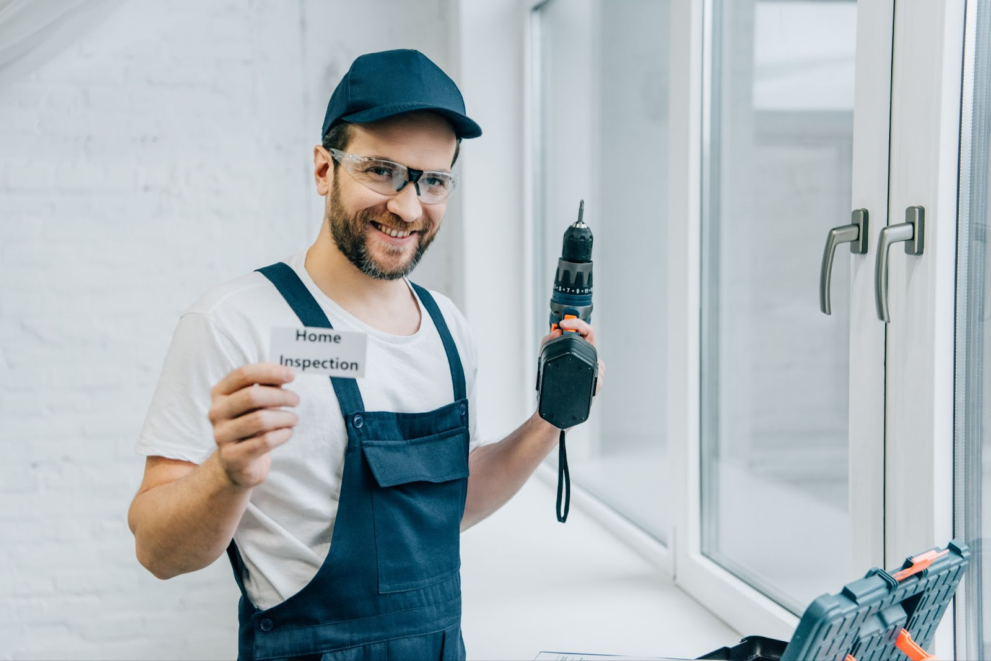
Request recommendations:
Ask real estate agents or previous home buyers among your family and friends to recommend trustworthy and knowledgeable inspectors in the Chicago region.
Check qualifications:
Look for home inspectors who are certified by a reputable organization, such as the American Society of Home Inspectors (ASHI) or the International Association of Certified Home Inspectors (InterNACHI).
- These certifications indicate that the inspector has met rigorous industry standards and adheres to a strict code of ethics.
Read reviews:
Research online reviews (e.g. Thumbtack, Angi) and testimonials from previous clients to learn about the inspector’s performance, communication skills, and professionalism.
Look for home inspection companies that have been recognized for their expertise and quality of service, such as those listed on Expertise.com
Check experience:
Select a home inspector with expertise in examining properties comparable to the one you are considering.
- This could apply to properties in the Chicago area that are older homes, multi-unit structures, or properties with distinctive structural features.
Inquire about the inspection procedure:
Ask the home inspectors about their inspection methods, such as the locations they will cover, the equipment they will use, and the structure of their final report.
- This will make it clearer to you how thorough and methodical the inspector will be.
Request information on extra services:
Some home inspectors in the Chicago area may offer additional services, such as termite inspections, radon testing, mold assessments, or sewer scope inspections.
- While these services may come at an extra cost, they can provide valuable information about potential issues with the property.
- If your inspector does not provide these additional services, they can refer you to a specialist who does.
Request a sample report:
Ask potential home inspectors for a sample of their inspection report.
This will give you an idea of the level of detail and organization you can expect in the final report.
Questions to Ask a Potential Home Inspector
Before hiring a house inspector, buyers should ask several questions to ensure they select the right one:
- What are your qualifications and certifications?
- How long have you been conducting house inspections?
- What does your inspection include, and what is not covered?
- Can you provide me with a sample report?
- How long will the inspection take, and can I attend?

What Happens on the Day of Your Home Inspection?
On the day of your home inspection, a licensed inspector will conduct a thorough visual examination of the home to assess its condition.
Here are some things that typically happen during a home inspection.
The inspector will:-
- Arrive at the home at the scheduled time and introduce themselves to the homeowner or real estate agent.
- Conduct a walkthrough of the home, both inside and outside, to assess the property’s condition.
- Take notes and photographs of any issues or concerns they identify during the inspection.
- Test the functionality of various systems and components, such as plumbing, electrical, and HVAC systems.
- Check for signs of water damage, mold, and other potential hazards.
- Report their findings, including recommendations for repairs or further inspections.
Buyers are encouraged to attend the inspection to learn firsthand about any issues.
Home Inspection Report
After the home inspection, the buyer will be provided a written report detailing the inspector’s findings.
The inspection report will include information about the property’s condition, safety issues, and immediate and future repairs or maintenance recommendations.
Home Inspection Report vs. Seller’s Disclosure Statement
While both the home inspection report and the seller’s disclosure statement provide information about the property’s condition, they are not the same.
The house inspection report is an objective, third-party assessment conducted by a home inspector, whereas the seller’s disclosure statement is a subjective account of the property’s condition provided by the seller.
Buyers should review both documents carefully to comprehensively understand the property’s condition.
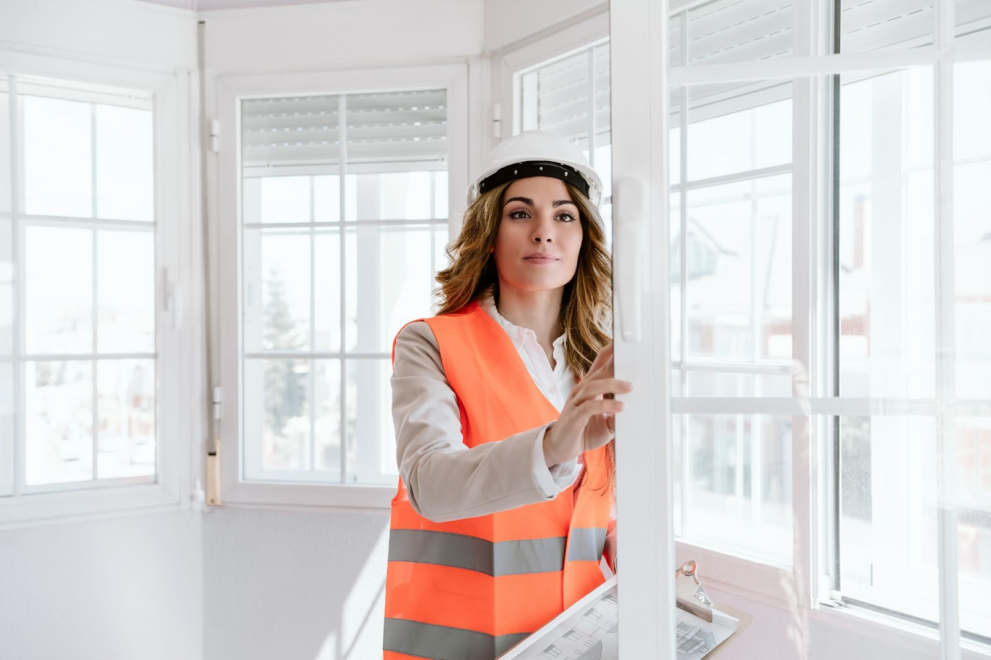
What Does a Home Inspection Cover?
Exterior Inspection
- Roofing, gutters, and downspouts
- Chimneys and vents
- Exterior walls, windows, and doors
- Foundation, grading, and drainage
- Decks, patios, and porches
- Driveways and sidewalks
Interior Inspection
- Plumbing systems, including supply and waste lines, water heaters, and fixtures
- Electrical systems, including service panels, wiring, and outlets
- Heating, ventilation, and air conditioning (HVAC) systems, including furnaces, air conditioners, and ductwork
- Insulation and ventilation in attics and crawl spaces
- Walls, ceilings, and floors
- Windows and doors
- Appliances, such as ovens, stoves, and dishwashers
What’s Not Covered in a Home Inspection?
While a home inspection can provide valuable information about a home’s condition, some things are not typically covered in a standard home inspection.
Here are some examples of what is not included in a home inspection:
- Dangerous substances such as asbestos, radon, methane, and formaldehyde
- Pest control, such as termites, carpenter ants, and rodents
- Swimming pools or spas
- Mold (outside of a visual check)
- Cigarette smoke damage
- Insulation voids
- Warped floors
- Septic tank issues
- Paint, wallpaper, and other finishes
- Landscape labor
- Underground sewer lines or utilities
- Specialized systems or equipment that are not commonly found in similar properties
While these items may not be covered in a standard home inspection, they can still be important to address and may require additional inspections or assessments.
It’s recommended to discuss any concerns or questions with your home inspector and to consider additional inspections or assessments as needed.
Buyers may need to arrange for additional inspections to assess these specific areas.
Note: Residential air conditioning units cannot be tested when the outside temperature is under 60 degrees Fahrenheit. Your inspector will note in his report that he could not test the system due to the temperature. In this situation, you are advised to ask the seller for a specific representation that the A/C unit is in working condition.
When Does the Home Inspection Happen?
The house inspection typically occurs after the buyer and seller have agreed upon the terms of the purchase agreement and an inspection contingency is included.
It usually takes place within a few days of the agreement being signed.
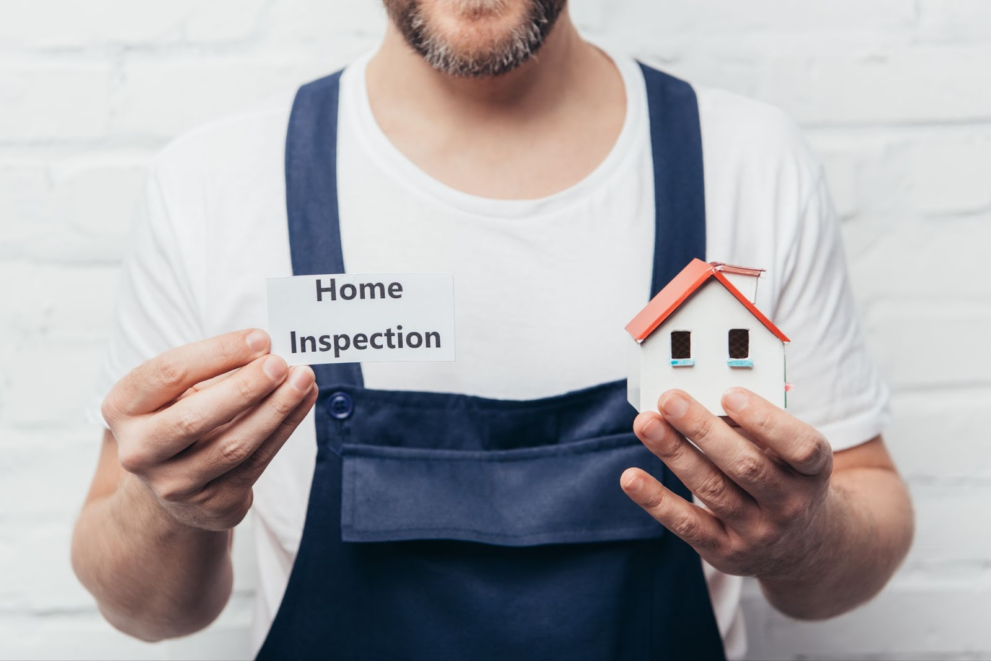
What Happens After a Home Inspection?
After the inspection, the buyer will review the inspection report and, usually in consultation with his realtor and attorney, decide whether to proceed with the purchase, negotiate with the seller, or walk away from the deal.
If the buyer chooses to negotiate, they will work with their real estate agent and real estate lawyer to strategize how best to present their requests to the seller.
Call now & Get a Free Consultation!
Special Offer: Mention this website (Northsidelegal.com) and get a free consultation on your first Real estate attorney service!
What Happens if Major Issues Are Found?
The buyer has several options if major issues are discovered during the inspection. They can:
- Request that the seller address the issues through repairs or replacements
- Negotiate a price reduction or credit at closing to account for the cost of repairs
- Walk away from the deal if the issues are deal breakers and an agreement cannot be reached with the seller
What Happens if Minor Issues Are Found?
If minor issues are found during the house inspection, the buyer may choose to address them after closing. In some cases, they may request that the seller fix the problems or provide a credit at closing to cover the cost of repairs.
While the home inspection cost may seem high, it can ultimately save you thousands of dollars in repair costs. Here’s a breakdown of the average costs for the specialized inspections:
| Inspection Type | Average Cost |
| Termite | $75 – $150 |
| Mold | $350 – $750 |
| Radon | $150 – $250 |
Always request quotes from multiple inspectors to ensure you receive a fair price.
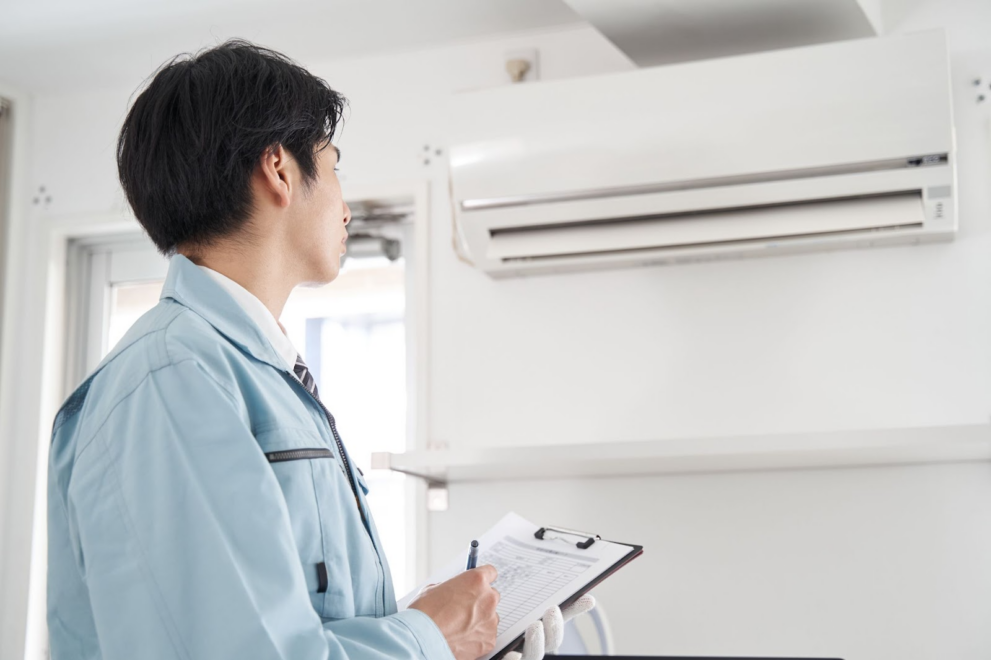
A Buyer’s Home Inspection Checklist
A home inspection checklist is a helpful tool for buyers to ensure they have a comprehensive understanding of the property’s condition.
Though the home inspector will conduct a thorough home inspection, having a checklist can help buyers focus on specific areas of concern.
The checklist should include:
- Structural components: Foundation, walls, roof and framing
- Exterior: Siding, windows, doors and drainage
- Interior: Floors, walls, ceilings, doors and windows
- Electrical systems: Wiring, outlets, switches and electrical panel
- Plumbing: Pipes, fixtures, water heater and sump pump
- HVAC systems: Heating, ventilation, air conditioning and ductwork
- Appliances: Built-in appliances such as ovens, dishwashers and garbage disposals
- Safety issues: Smoke detectors, carbon monoxide detectors and proper ventilation
What Should Sellers Expect From A House Inspection?
Sellers can expect a comprehensive assessment of their property during the house inspection. The home inspector will examine the exterior, interior and various systems to identify any issues or concerns.
After the inspection, the seller may need to address any problems found, negotiate with the buyer, or, in some cases, potentially lose the deal if significant issues are uncovered.

The Bottom Line
A home inspection is essential in home-buying, providing valuable insights into a property’s condition.
- Working with a home inspector and utilizing a checklist can help buyers make informed decisions.
- The home inspection report and contingency provide the knowledge required for negotiations or walking away if necessary.
- A thorough inspection ensures a safe and sound investment for buyers and confidence in the real estate transaction for both parties.
